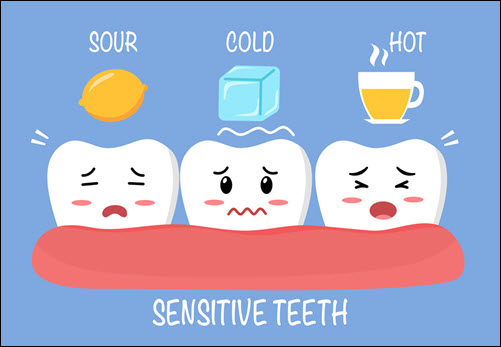Tooth Sensitivity: Understanding Causes and Managing Symptoms
Tooth sensitivity is a common dental issue that affects many individuals. It causes discomfort or pain when teeth are exposed to certain stimuli like hot, cold, sweet, or acidic foods and beverages. This sensitivity occurs when the tooth’s protective enamel wears down or when gum recession exposes the underlying dentin. When this happens, it allows stimuli to reach the nerve endings inside the tooth.
 Several factors contribute to tooth sensitivity. Some of these include aggressive brushing, gum disease, cracked teeth, and acidic dietary habits. The good news is that tooth sensitivity can often be managed with proper dental care and lifestyle adjustments. Using a toothpaste specifically formulated for sensitive teeth helps block the pathways to the nerves that transmit pain. Soft-bristled toothbrushes and gentle brushing techniques also protect enamel and prevent further gum recession.
Several factors contribute to tooth sensitivity. Some of these include aggressive brushing, gum disease, cracked teeth, and acidic dietary habits. The good news is that tooth sensitivity can often be managed with proper dental care and lifestyle adjustments. Using a toothpaste specifically formulated for sensitive teeth helps block the pathways to the nerves that transmit pain. Soft-bristled toothbrushes and gentle brushing techniques also protect enamel and prevent further gum recession.
Regular dental checkups are crucial for addressing the underlying causes of sensitivity. Some causes include cavities or gum disease. In some cases, dental procedures like fluoride varnishes, desensitizing treatments, or dental bonding may reduce sensitivity and protect the teeth.
Summing it up, while tooth sensitivity can be an uncomfortable condition, it is often manageable with the right approach to oral hygiene and professional dental care. Understanding the causes and taking proactive steps to protect your teeth can help minimize discomfort and maintain a healthy, pain-free smile. If you have sensitive teeth and would like to learn more about how to avoid dental pain and tooth sensitivity, give us a call at Shpritz Family Dental.



